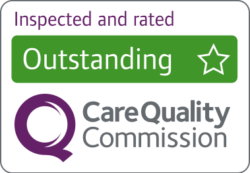With elderly members of the community, hospitalisation maybe triggered (perhaps by the GP or a concerned neighbour) if an individual is thought to be unable to cope with living independently. The hospital stay might be short or long term, and on release from hospital a return home is not guaranteed – in some cases residential care may be considered more appropriate.
To avoid hospitalisation, it is important for family and friends to be aware of how the individual is coping, especially if they live on their own. They should be confident that the person concerned is able to carry out everyday tasks safely and effectively. This would include keeping their home reasonably clean and tidy, maintaining good personal hygiene and being able to cook for themselves – and eating what they have prepared.
Sometimes the natural ageing process, or the development of a condition like Dementia, makes it progressively difficult for an individual to sustain genuine independence. This is where home care can be a valuable resource; the right care will enable them to continue living safely in their own home for longer. A regular Home Care Assistant also means that there is someone visiting frequently who can keep an eye on how their client is coping – thus avoiding any sudden emergencies and allowing for a more dignified and enjoyable life.
For the individual and their family, there are useful additional points of contact, advice and support, including
https://www.thesilverline.org.uk/ (Silverline’s 24 hour helpline for older people: 0800 4 70 80 90 )
https://www.agespace.org/ (a forum for advice and discussion, aimed mainly at families with ageing parents)
https://www.ageuk.org.uk/information-advice/care/housing-options/home-safety/




